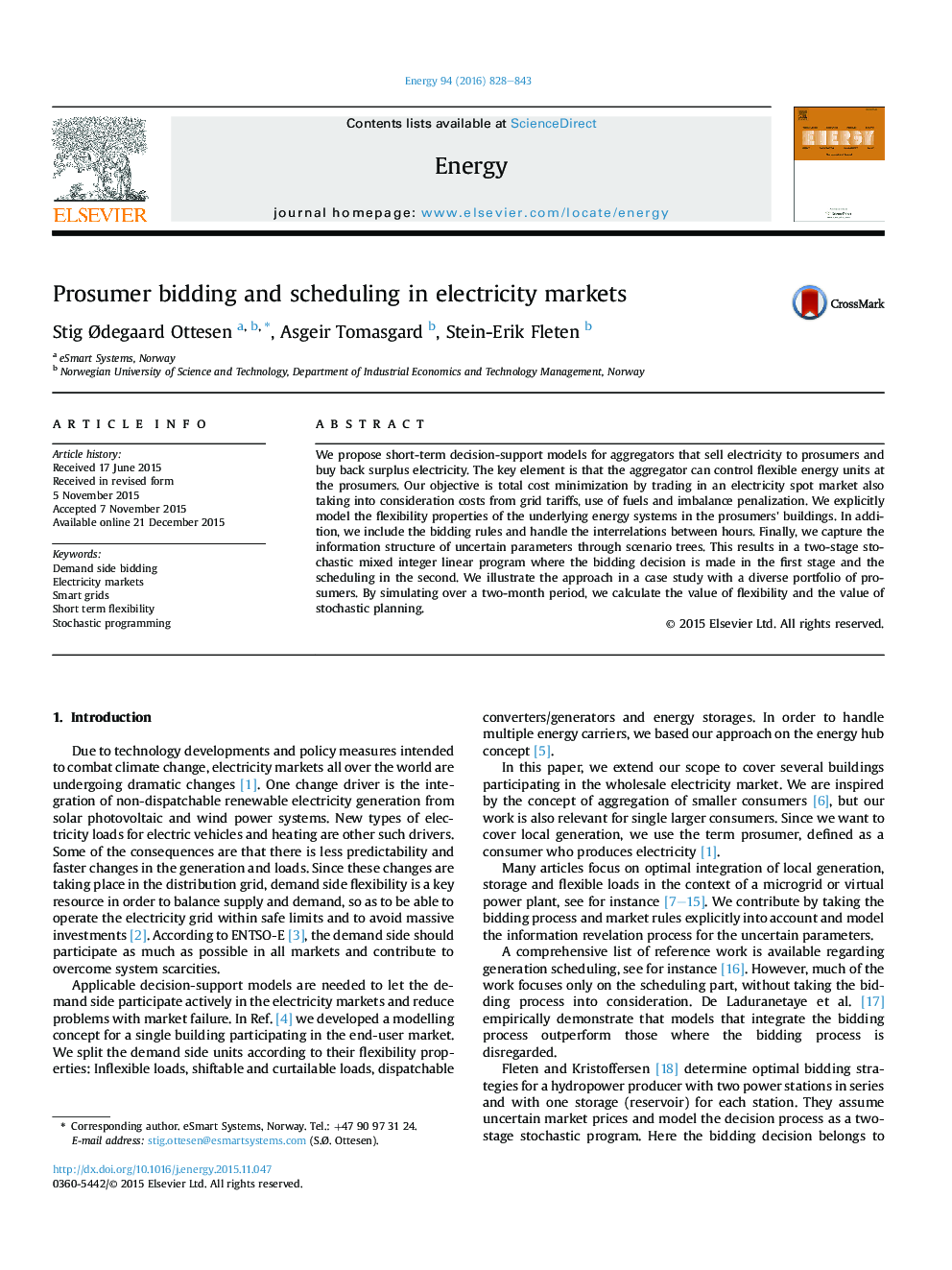| Article ID | Journal | Published Year | Pages | File Type |
|---|---|---|---|---|
| 1731236 | Energy | 2016 | 16 Pages |
•We propose a new decision-support model for demand-side bidding and scheduling.•We explicitly represent the bidding process and handle interrelation between hours.•We take into account the prosumers' energy units and their flexibility properties.•We represent uncertain parameters in scenario trees.•We perform a case study to illustrate the properties of the model.
We propose short-term decision-support models for aggregators that sell electricity to prosumers and buy back surplus electricity. The key element is that the aggregator can control flexible energy units at the prosumers. Our objective is total cost minimization by trading in an electricity spot market also taking into consideration costs from grid tariffs, use of fuels and imbalance penalization. We explicitly model the flexibility properties of the underlying energy systems in the prosumers' buildings. In addition, we include the bidding rules and handle the interrelations between hours. Finally, we capture the information structure of uncertain parameters through scenario trees. This results in a two-stage stochastic mixed integer linear program where the bidding decision is made in the first stage and the scheduling in the second. We illustrate the approach in a case study with a diverse portfolio of prosumers. By simulating over a two-month period, we calculate the value of flexibility and the value of stochastic planning.
